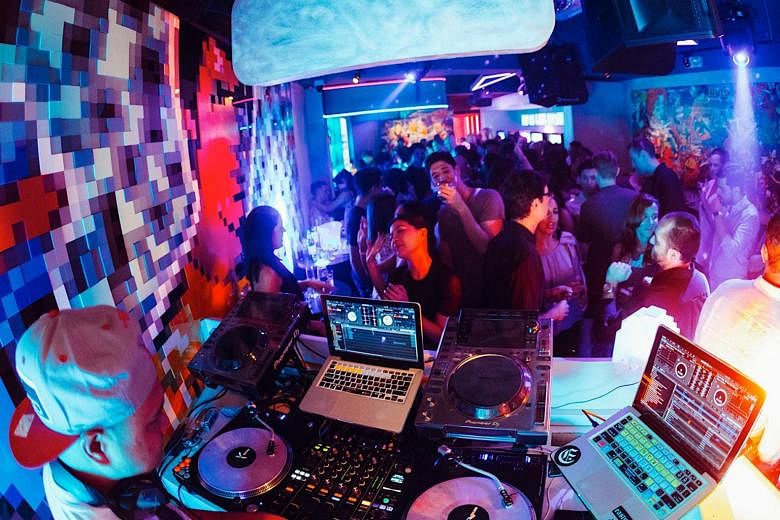Kloud Karaoke Lounge has not been able to reopen for about half a year since the two-month circuit breaker that started in April, on account of government concerns that nightlife settings such as clubs and karaoke lounges are high-risk areas for Covid-19 to spread.
And it might just remain that way permanently next month if things do not improve, as the pandemic drags on and rental costs for the four-year-old karaoke lounge in Tanjong Katong snowball.
"Every day there is a delay, we have to bear with the rental," said Mr Ronald Ng, Kloud Karaoke Lounge's director. "Our landlords chase us for rental... and it's not a small sum... I don't know whether we can hold on until next month."
Things are getting dire for some nightlife operators with no certainty on when they can reopen, since government updates on Tuesday suggest their businesses cannot resume even at the start of phase three of Singapore's reopening, which could happen by the end of the year.
And pivoting to other lines of business to remain afloat has been very challenging for many, for various reasons.
It was reported in August that a poll by the Singapore Nightlife Business Association and the Singapore Entertainment Affiliation, which represents karaoke operators, found that less than 10 per cent of respondents said they would survive to the end of this month.
While larger businesses are able to bear the financial costs of retooling, smaller ones such as entertainment company A Phat Cat Collective are feeling the pinch.
Co-founder Francesca Way and her colleagues have been working to turn their two bars - nineteen80 and Pinball Wizard - into food and beverage outlets.
Ms Way cited concerns in bearing the financial costs of pivoting, as well as difficulties in getting the proper licences.
"Building something like a kitchen set-up costs over five figures," she added.
The company began the transformation in August and applied for a change of licence last month, but the complex nature of licensing and the fact that the process is managed by multiple agencies mean things can be slow going.
Several karaoke operators, who are surviving on their dwindling reserves, also cite difficulties in getting approvals to convert their business licences and space constraints in changing up their trade.
Mr Ng, who is also chairman of the Singapore Entertainment Affiliation, which has more than 100 members, said pivoting was harder for karaoke lounges as compared with pubs and bars because of their lack of food and beverage experience.
He said turning his karaoke lounge into an office for rent is not a long-term or viable solution because other places that can serve similar functions, such as libraries, have opened up.
Director of Teo Heng KTV Studio Jean Teo said that changing how the chain's premises can be used is not a straightforward process.
If the use of the premises is changed and Teo Heng wants to later apply to reverse this to return to the karaoke business, there is a risk the application will be rejected.
The popular karaoke chain has shuttered two of its 14 outlets since March 27.
With a soft spot for its employees, the company has paid them full salaries with Central Provident Fund contributions for the past six months. But high losses led to employer and employees jointly deciding to take a 50 per cent pay cut as of this month to help tide the company over this difficult period. There are plans to pay this back.
Said Mr Ng: "The two options given by the Government are that if you don't pivot, you exit. But pivoting is not for the whole industry."
• Additional reporting by Wong Shiying











